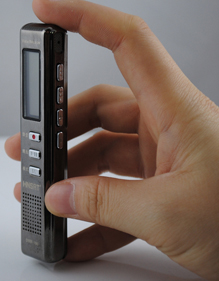
Dear Corruption Watch,
Corruption Watch could effectively expose corruption and contribute to the prosecution of corrupt individuals if it recorded them soliciting bribes and if it encouraged members of the public to do the same. Is there any legal barrier to doing this and can this evidence be used in disciplinary or criminal proceedings? Are there any constraints on the police gathering evidence in this way? – Enforcer
Dear Enforcer,
It is always productive to think of ways in which ordinary South Africans can take steps to combat corruption. Recording people soliciting bribes could indeed be an effective way to combat corruption. However, it is an area that is carefully regulated; and for a good reason.
When we have conversations with each other we have a reasonable expectation of privacy. Recording those conversations without our permission is an invasion of our right to privacy. And using evidence in a trial that was obtained by violating constitutional rights can render the trial unfair. Courts will not admit evidence if it would make the trial unfair.
The interception and monitoring of communications – whether conversations, telephone calls, emails or any other form of communication – is regulated by the Regulation of Interception of Communications and Provision of Communication-Related Information Act 70 of 2002, better known as RICA. RICA distinguishes between different types of conversations.
All conversations are either participant conversations or non-participant conversations. If the person recording is one of the parties to the conversation, it is a participant conversation. If the recording person is not a party – if he is eavesdropping from across the room, or listening in through a phone tap – it is a non-participant conversation.
Ordinary people are always allowed to record conversations in which they are a participant. If a policeman pulls you over at a roadblock and tries to solicit a bribe, or an official of Home Affairs tries to solicit a bribe for the speedy processing of your ID application, you are fully entitled to record that conversation. That recording will normally be admissible in both criminal and disciplinary proceedings.
Policemen, on the other hand, are normally not allowed to record conversations, even if they are part of the discussion. They can only do so if they have reason to believe that a serious offence is likely to be committed or that national security, public health or safety is at risk.
There are good reasons for treating policemen differently from the average Joe. Policemen have strong incentives to try and identify potential criminals or to gather evidence on people they suspect of crimes. We don’t want policemen hanging out at bars with their recorders on hoping to pick up some evidence of criminality in bars. That is what happens in a police state.
The way policemen generally get around this provision is to get an informer to wear a wire. Our courts have held that non-policemen are free to record his own conversations even if they are put up to it by the police.
As far as recording conversations that you are not a part of, the general rule is that you can’t. Eavesdropping on another person’s private conversation is an obvious invasion of privacy. This is most relevant to the police who may want to tap someone’s phone in order to collect evidence. If they want to do so, they have to get the permission of a judge first. If they don’t get that permission, any evidence they overhear will be inadmissible.
When the police were investigating South Africa’s biggest ever robbery – more than R31 million – they lied to the judge to get permission to tap phones. All the evidence they heard through the tap was inadmissible in the trial.
Take a stand and report an incident of corruption. This article originally appeared in the Sunday Times Business Times on 18 November 2012.
Excerpt
Recording people soliciting bribes could be an effective way to combat corruption. However, it is an area that is carefully regulated; and for a good reason.
File Upload
